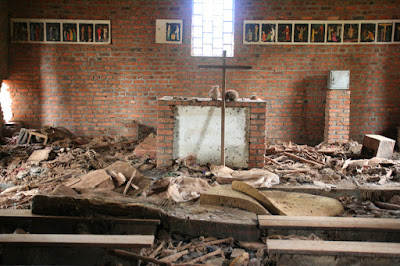From The Bible, a TV miniseries
Readings (New American Bible: Philippines, USA)
Readings (Jerusalem Bible: Australia, England & Wales, India [optional], Ireland, New Zealand, Pakistan, Scotland, South Africa)
Gospel Luke 18:9-14 (New Revised Standard Version, Catholic Edition, Canada)
Jesus also told this parable to some who trusted in themselves that they were righteous and regarded others with contempt: “Two men went up to the temple to pray, one a Pharisee and the other a tax collector. The Pharisee, standing by himself, was praying thus, ‘God, I thank you that I am not like other people: thieves, rogues, adulterers, or even like this tax collector. I fast twice a week; I give a tenth of all my income.’ But the tax collector, standing far off, would not even look up to heaven, but was beating his breast and saying, ‘God, be merciful to me, a sinner!’ I tell you, this man went down to his home justified rather than the other; for all who exalt themselves will be humbled, but all who humble themselves will be exalted.”
What blocked the Pharisee from receiving God’s blessing, from going down to his home justified wasn’t his telling God the good things he had done – St Paul doesn’t hesitate to say to Timothy in today’s Second Reading, I have fought the good fight, I have finished the race, I have kept the faith (2Timothy 4:7) – but his self-righteous contempt for others whose inner struggles he seemed to be totally unaware of.
I am a survivor of the Tutsi genocide in Rwanda 1994.
A large part of my family was killed while in our parish church. The sight of this building used to fill me with horror and turned my stomach, just like the encounter with the prisoners filled me with disgust and rage.
It is in this mental state that something happened that would change my life and my relationships.
On August 27th 1997 at 1 p.m., a group from the Catholic association of the ‘Ladies of Divine Mercy’ led me to two prisons in the region of Kibuye, my birthplace. They went to prepare the prisoners for the Jubilee of 2000. They said: ‘If you have killed, you commit yourself to ask for forgiveness from the surviving victim, that way you can help him free himself of the burden/weight of vengeance, hatred and rancor. If you are a victim, you commit yourself to offer forgiveness to those who harmed you and thus you free them from the weight of their crime and the evil that is in them’.
This message had an unexpected effect for me and in me . . .
After that, one of the prisoners rose in tears, fell to his knees before me, loudly begging: ‘Mercy’. I was petrified in recognizing a family friend who had grown up and shared everything with us.
He admitted having killed my father and told me the details of the death of my family. A feeling of pity and compassion invaded me: I picked him up, embraced him and told him in a tearful voice: “You are and always will be my brother”.
Then I felt a huge weight lift away from me . . . I had found internal peace and I thanked the person I was holding in my arms.
To my great surprise, I heard him cry out: ‘Justice can do its work and condemn me to death, now I am free!’
I also wanted to cry out to who wanted to hear: ‘Come see what freed me, you too can find internal peace’.
From that moment on, my mission was to travel kilometers to bring mail to the prisoners asking for forgiveness from the survivors. Thus 500 letters were distributed; and I brought back mail with the answers of the survivors to the prisoners who had become my friends and my brothers . . . This allowed for meetings between the executioners and the victims . . .
From this experience, I deduce that reconciliation is not so much wanting to bring together two persons or two groups in conflict. It is rather the re-establishment of each in love and allowing internal healing which leads to mutual liberation.
And here is where the importance of the Church lies in our countries, since her mission is to offer the Word: a word that heals, liberates and reconciles.
Pope Francis echoes this last sentence of Sr Genevieve in his message for this year’s World Mission Day: Mercy finds its most noble and complete expression in the Incarnate Word. Jesus reveals the face of the Father who is rich in mercy.
The man who killed the father of Sister Genevieve experienced God’s mercy through her as she did through him. Each was freed of the very different but related burdens that they carried. And the man had no more fear of whatever punishment he might receive for his crime. Like the tax-collector in the gospel, he made no excuses. He simply asked for mercy.
Laetetur cor quaerentium Dominum.
Let the hearts that seek the Lord rejoice;
Querite Dominum et confirmamini, quaerite faciem eius semper.
turn to the Lord and his strength; constantly seek his face.
The text in bold is used in the Ordinary Form of the Mass while the longer text is used in the Extraordinary Form, though it may also be used in the Ordinary Form.

